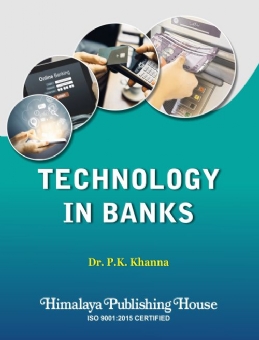Technology has revolutionised banking industry in India. The industry, which is over 200 years old, has become young and energetic. The general impression that the banking industry is unfriendly industry, averse to change, which deals only in age-old products, has become a thing of the past. Technology has dominated this industry. According to a report by the “Confederation of Indian Industry and PriceWaterhouseCoopers” while banks have traditionally relied on technology solutions, including the biometric card and the customer relationship management (CRM) software, use of the telephone, mobile platform, automated teller machines, Internet and television, with the emergence of technologies like cloud computing and social media, they should now “institute fundamental technological changes”.
With the help of technology, banks have been able to improve their services by utilising multichannel service outlets. Banks have introduced new and innovative service products. Even after retaining the fundamentals of banking, banks have amended operational systems and procedures. Growing competition and instructions and guidelines of the Reserve Bank has changed the entire face of this industry. Technology has increased operational efficiency, profitability and productivity of banks. Banks are able to efficiently manage various risks and deploy surplus funds properly and profitably.
Banking has become the most preferred industry for employment. To have the best talent, banks have started campus recruitment, as knowledgeable workforce is the best asset. Looking at the growing scope of employment potential, many management institutes and universities have introduced banking either as one of the compulsory or an optional subject. Some universities have started even postgraduate diploma in banking and insurance and their process of selection is tough. Some banks have tied up with universities and guarantee placement in banks on completion of the course. Even Times of India has started courses on banking. The book aims at updating the knowledge of students pursuing MBA, M.Com., and of those who are interested in knowing the changes that has taken place or are taking place or may take place in the banking sector due to fusion of technology.
Contents –
1. Branch Operations and Technological Implementations
2. Core Banking
3. Delivery Channel: Automated Teller Machine
4. Technology-based Banking Services
5. Cheques
6. Electronic Money (e-Money)
7. Interbank Payment System
8. Electronic Commerce (e-Commerce)
9. Management Information System (MIS)
10. Customer Relationship Management
11. Risk Management
12. Treasury Management
13. Computer Audit and Cyber Crime
14. Various Committees on Mechanisation of Banking Operations
15. Bibliography







